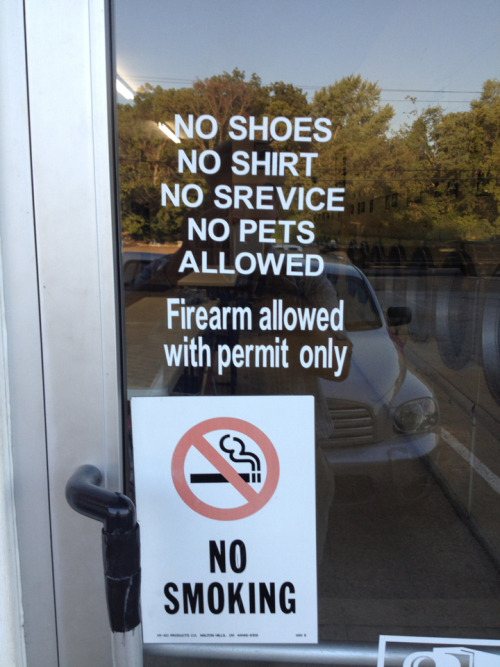
This Tennessee laundromat has its limits

This Tennessee laundromat has its limits
The Gospel Coalition has a great video with Matt Chandler, Mark Dever, and James MacDonald sharing some preaching blunders. It reminded me of a few years back close to December 6 when I tried explaining to children that Santa Claus was St. Nicholas, a Christian Pastor. After telling them about his life I told them that some churches remember St. Nicholas on Dec 6 since that was the day he died. It dawned on me as I began praying that I had just told our children that Santa was dead. Fortunately I don’t think anyone paid enough attention to connect the dots. Here’s the video:
Preaching Goofs from The Gospel Coalition on Vimeo.
Saw this post on “Holy Town” a “Christian” Facebook Game at Jesus needs new PR.
It looks like you try to build the biggest church. Uggh!
Q: Who made you
A: God
Q: Why did God make you? (response “To glorify him and enjoy him”)
A: To make a joke.
Q: Who made you
A: God
Q: What else did God make (response “God made all things”)
A: God made me happy!
As part of getting to know the congregation I’m now serving I’ve been reading about its history, including looking through old minutes. As the Church in the county seat we’ve absorbed the membership of smaller congregations that have closed in the past. One such congregation was the Presbyterian Church in Centre – a town I wasn’t familiar with. I asked a few people who were in the Church but they hadn’t heard of it. I looked it up in True Tales of Tipton County, a local history. I found a great story that had been censored from a Victorian era novel written by Frances Boyd Calhoun, a Covington school teacher: Miss Minerva and William Green Hill. The event had taken place in the Centre church.
One Sunday a Mr. and Mrs. Simpson [the last members from Centre who transfered to Covington], who attended to the Communion, took a bottle out of the closet and used it serve Communion. By mistake they got the wrong bottle which contained, instead of wine, an old-time laxative called “Simmon’s Liver Regulator.” The results can be imagined. (True Tales of Tipton, Gaylon Neil Beasley, p. 120)

Every year around Halloween I hear brothers and sisters raising concerns about Christians participating in Halloween events. Generally they point to the pagan origins of Samhain and the “unscriptural” feast of All Saints Day as an invention of the Roman Catholic Church and therefore unwarranted. This year like several before our congregation had a Halloween party with kids wearing costumes; we gave out candy, roasted marshmallows and had a hay ride. I know many churches have similar festivities but rename it “Fall Festival”. It seems to be disingenuous to me to happen to have a party around October 31 were you encourage kids to wear costumes, but act like it’s not a Halloween party because you have used a different name. Besides, Halloween (All Hallows Eve) is the Christian term for the day.
Again this year a friend shared with me an explanation of why Halloween is evil and Christians should not participate. As I thought about it I didn’t think I could or even should try to convince another believer that Halloween is good and should be embraced. At the same time I don’t think it is appropriate to be dismissive of concerns by fellow believers. So in an attempt to explain why my children will dress up this evening and go trick-or-treating I offer the following points.
I’ll be back to more regular posts soon. I’m finishing up a chapter on my thesis. But I thought I would share this from failblog.org:
